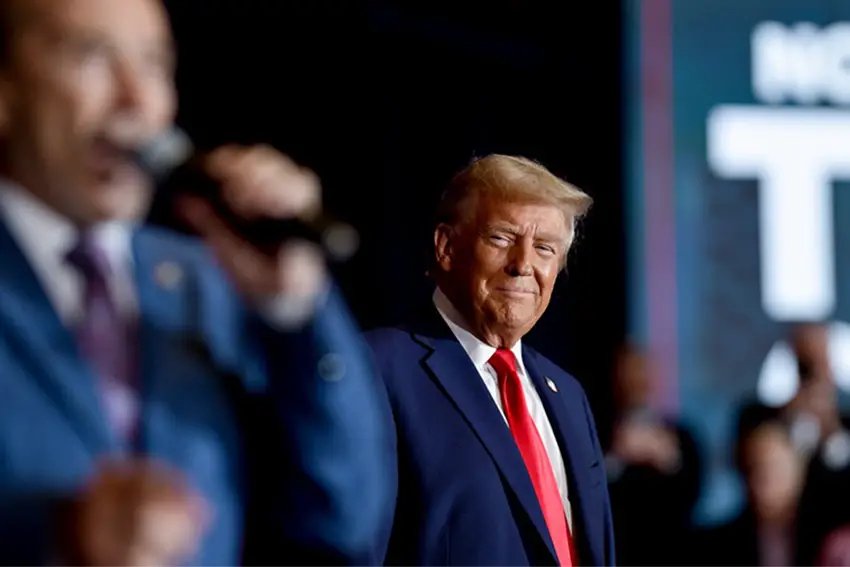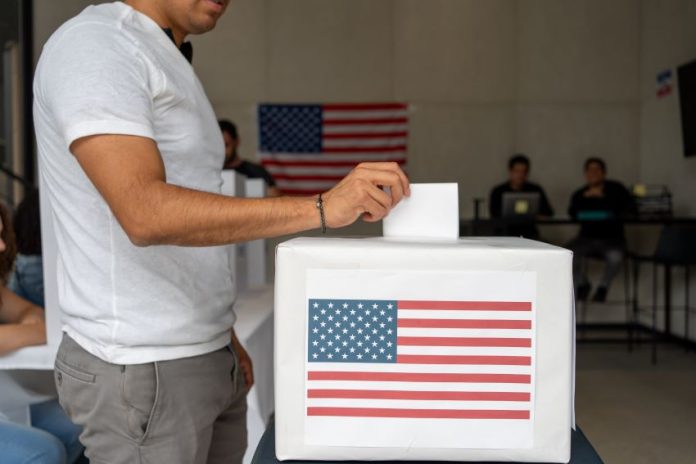Analysts have alerted traders to the vulnerability of the Mexican peso amid potential risks related to the U.S. presidential election while others warn that a win by former President Donald Trump could have grave consequences for the Mexican economy.
The news agency Reuters reported last week that the peso slipped in response to a potential Trump election win because Mexico’s currency is seen as “vulnerable to new tariffs Trump plans to impose.”

The Republican Party candidate has repeatedly stated that he would slap massive tariffs on vehicles imported from Mexico if he wins on Nov. 5. The uncertainty related to the contentious U.S. election has coincided with the peso’s slipping 4% from its September high.
Earlier this month, JP Morgan downgraded the peso to market-weight from overweight, citing traders’ concerns about the next U.S. president’s approach on topics ranging from tariffs to the upcoming review of the USMCA trade deal.
Some traders and foreign exchange markets are reflecting confidence in a Trump victory with so-called “Trump trades” being viewed as a bet on whether Trump or Democratic Party candidate Kamala Harris will win. One key “Trump trade” is the buying and selling of shares of Trump Technology and Media Group (DJT).
Trump trades are visible in the dollar’s rebound against a range of currencies, particularly the Mexican peso, strategists said, according to Bloomberg News.
“Implied volatility in the dollar-peso pair has been ratcheting up in line with Trump’s gains in betting markets,” Karl Schamotta, chief market strategist at payments company Corpay in Toronto, told Reuters.
Investors taking wait-and-see approach

Nuevo León Governor Samuel García said that Mexico’s economy will be impacted regardless of who wins the U.S. election. While Trump has threatened higher tariffs, Harris voted against the trilateral USMCA trade agreement, citing insufficient environmental protections.
Although García acknowledged that some projects have been paused as investors await the outcome of the U.S. vote (Elon Musk postponed construction of a Tesla plant in Nuevo León because of Trump’s tariff threats), he insists that such projects have not been canceled.
García also said that once the outcome is decided, the winner’s automotive policies will become clear and investors will respond.
It is this uncertainty with regard to future U.S. trade policies, however, that is contributing to the peso’s volatility.
Traders, said JP Morgan, need more visibility on trade policies to confidently assess the path for the currency in the medium term.
What would a Trump victory mean?
The Republican candidate’s protectionist rhetoric has alarmed many entrepreneurs in Mexico, especially in the automotive sector, one of the most important industries in Mexico. The auto industry comprises 4% of Mexico’s GDP and makes up more than 20% of the nation’s manufacturing sector, according to the Mexican Automotive Industry Association (AMIA).
“The entire value chain — from assembly plants to maquiladoras to parts suppliers — is nervous,” says Jesús Manuel Salayandía, the president of Bloque Empresarial Fronterizo, a new association of entrepreneurs located near the Mexico-U.S. border.
The nervousness is derived from Trump’s constant threats to impose tariffs on imports of Mexican vehicles. The GOP hopeful has alternately promised to impose 100%, 200% and 300% tariffs, although such changes would require renegotiation with Mexico and Canada of the USMCA.
Nevertheless, the concern is warranted as 80% of Mexico’s overall exports go to their northern neighbor, and given that Trump’s threats could become a reality when the USMCA comes up for review in 2026.
Even so, Mexico’s President Claudia Sheinbaum expressed confidence that the tariff threats are just campaign bluster.
“The peso has been impacted by statements made by one of the candidates, but I believe it is just campaign chatter,” Sheinbaum said. “I don’t think the treaty is at any risk.”
However, should Trump win and pursue an aggressive trade policy, Mexico’s economy could shrink as much as 2% by 2026, Dana Bodnar, an economist with trade credit insurer Atradius, told the newspaper El Economista.
Bodnar also warns that foreign direct investment in Mexico could shrink if Trump wins.
For its part, Moody’s Ratings has warned that even a tariff as small as 10% on Mexican imports could paralyze Mexico’s economy in 2025, El Economista reported.
With reports from Qué Pasa Media, EFE, Reuters, Bloomberg and El Financiero
